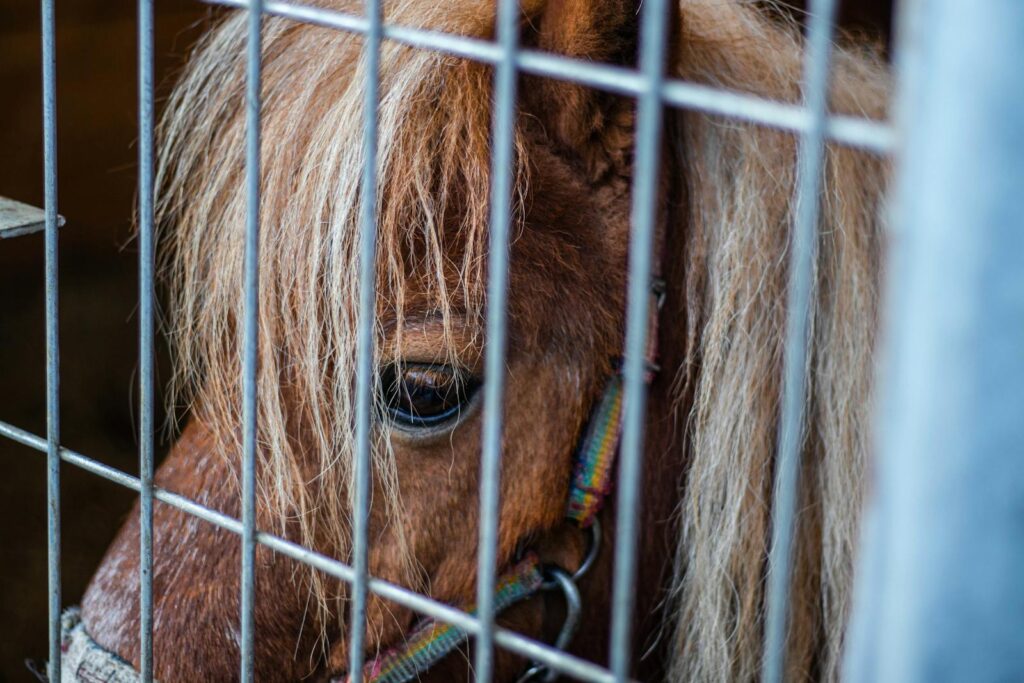Horses, like humans, can experience emotional and psychological distress that manifests as depression. These majestic animals are sensitive creatures with complex emotional lives, yet their depression often goes unrecognized or is misattributed to physical ailments. Equine depression can stem from various factors, including environmental changes, social isolation, trauma, or underlying health issues. Recognizing the signs early and implementing appropriate interventions is crucial for maintaining your horse’s mental well-being and overall health. This comprehensive guide will help horse owners and caretakers identify depression in their equine companions and take effective steps toward restoring their emotional balance and zest for life.
Understanding Equine Emotional Health
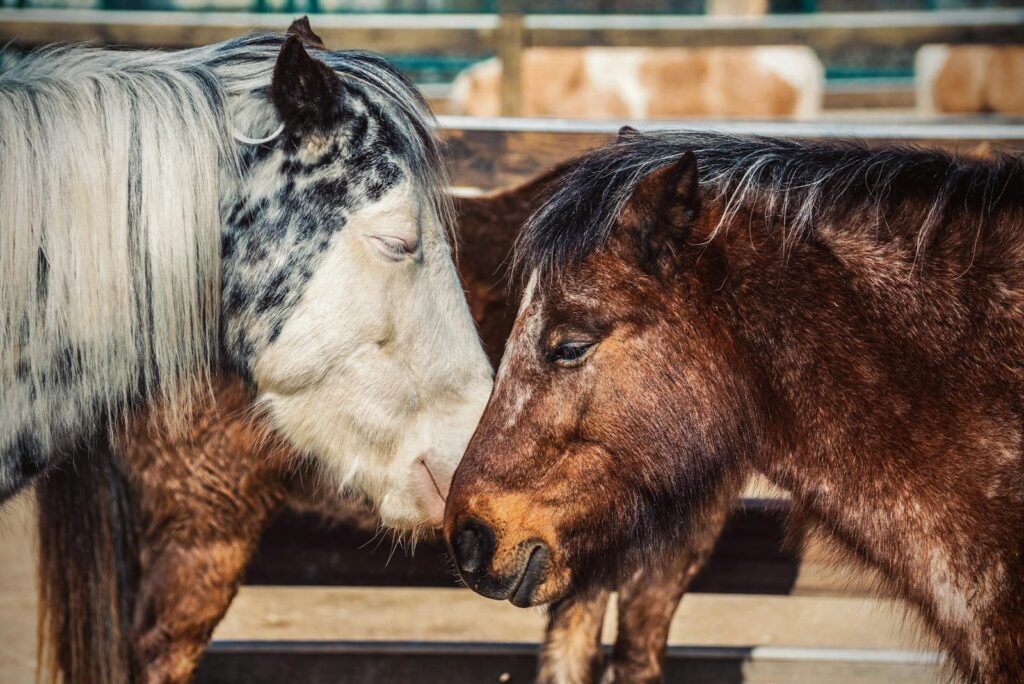
Horses are highly social, sensitive animals with emotional lives more complex than many people realize. Scientific research increasingly shows that equines experience a range of emotions similar to humans, including joy, fear, anxiety, and depression. Their evolutionary history as prey animals has made them acutely responsive to environmental changes and social dynamics. A horse’s mental health directly impacts its physical health, performance, and quality of life. Understanding this emotional complexity is the first step in recognizing when something isn’t right with your equine companion’s psychological state.
Common Causes of Equine Depression

Several factors can trigger depression in horses, with major life changes among the most common culprits. The loss of a companion animal or separation from familiar herd mates can profoundly affect a horse’s emotional state, as equines naturally form strong social bonds. Environmental changes such as relocation to a new stable, shifts in routine, or even seasonal variations can disrupt a horse’s sense of security. Physical pain or chronic illness often manifests as behavioral changes that mimic depression, making veterinary assessment essential. Additionally, past trauma, inadequate exercise, insufficient mental stimulation, or poor human-horse relationships can contribute to a depressed state in these sensitive animals.
Behavioral Signs of Depression in Horses
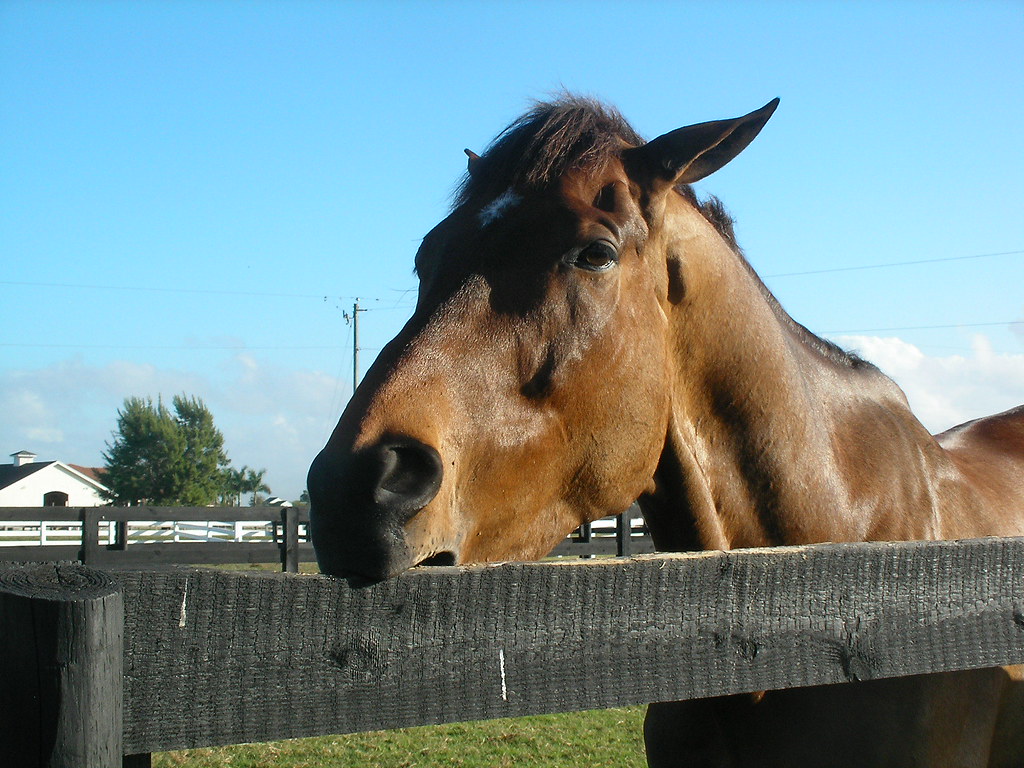
Depressed horses often exhibit marked changes in their usual behavior patterns—signs attentive caretakers can recognize. A previously energetic horse may become lethargic, standing with a drooped head, lowered ears, and a generally disengaged posture—behavior sometimes referred to as “checking out.” Loss of interest in previously enjoyable activities—such as turnout time, social interaction, or training—can be particularly telling. Some horses develop stereotypic behaviors like cribbing, weaving, or stall walking as coping mechanisms for emotional distress. Social withdrawal from both equine companions and human handlers is another significant red flag that shouldn’t be overlooked.
Physical Manifestations of Equine Depression
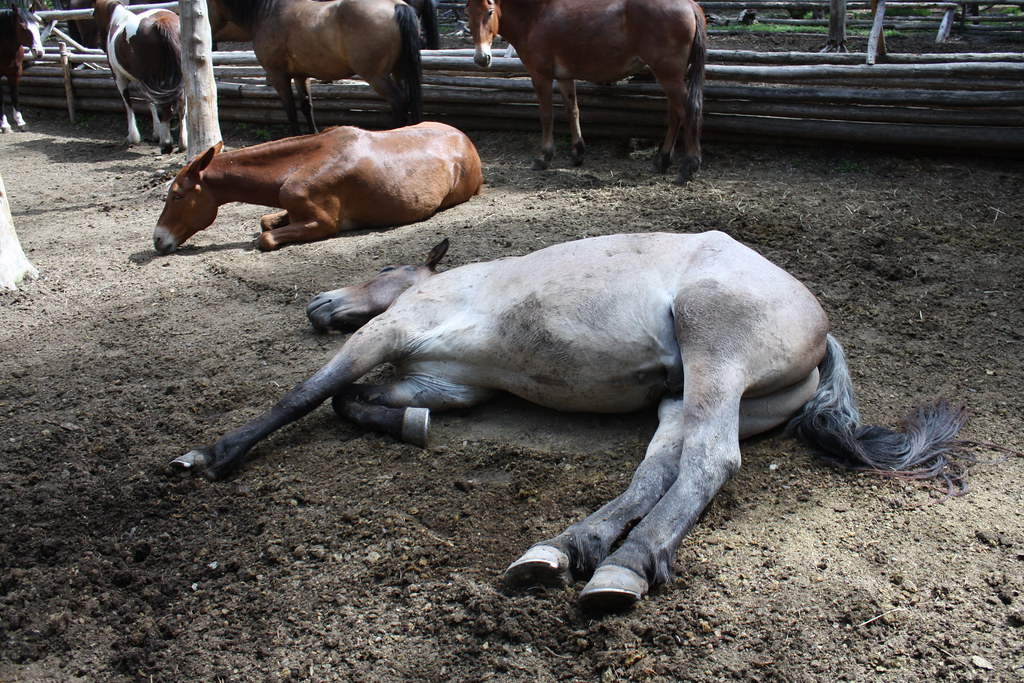
Depression in horses frequently manifests through noticeable physical symptoms alongside behavioral changes. Appetite disturbances are common—some horses show reduced interest in feed or hay, while others engage in comfort eating, leading to unexpected weight changes. Sleep patterns may also become disrupted, with affected horses either sleeping excessively or displaying signs of sleep deprivation such as staggering or momentary collapse. A dull, rough coat may develop as self-grooming decreases and stress hormones affect coat quality. Depressed horses often show reduced physical movement, appearing stiff, reluctant to exercise, and less responsive to stimuli in their environment.
Distinguishing Depression from Physical Illness
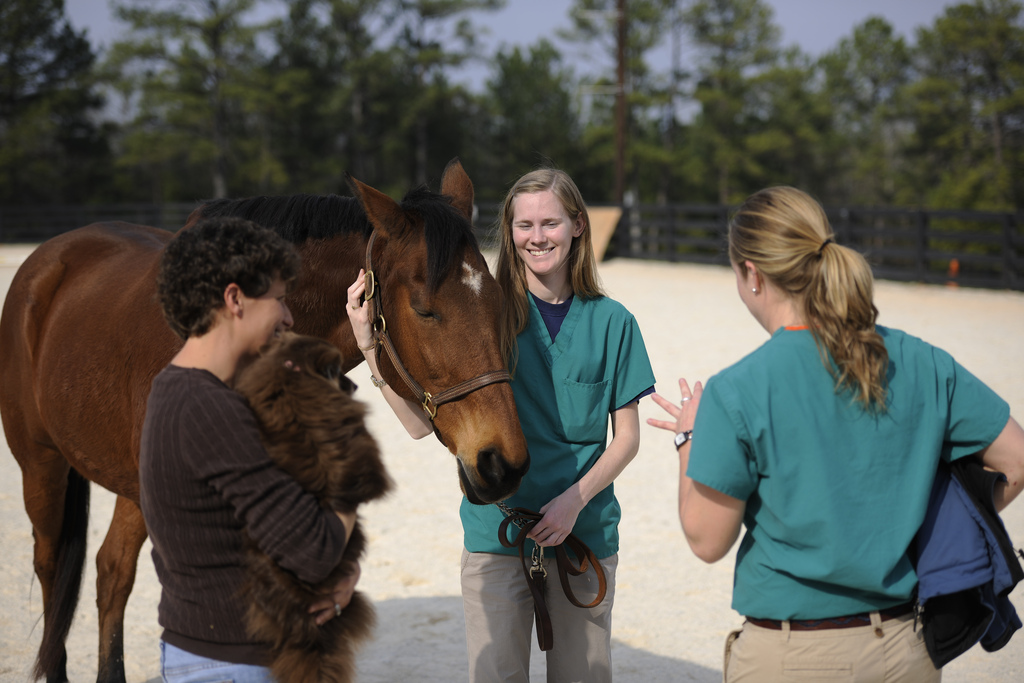
One challenge for horse owners is distinguishing between depression and physical illness, as many symptoms overlap. A thorough veterinary exam is essential to rule out pain, infections, metabolic disorders, or neurological issues that can mimic depression. Blood tests can help identify hormonal imbalances, nutritional deficiencies, or organ dysfunction contributing to behavioral changes. Dental problems—often hidden until advanced—can also cause discomfort that resembles depression. Once medical causes are ruled out or treated, psychological factors can be addressed, though it’s important to remember that physical and emotional health are deeply interconnected in horses.
The Role of Social Interactions in Equine Mental Health

Horses are herd animals whose evolutionary psychology is rooted in social bonds. Isolation from other horses can significantly impact mental health, even when physical needs are met. Studies show that horses with visual and tactile access to others maintain better psychological balance than those kept in isolation. The quality of social relationships also matters—a horse may technically be part of a group yet still suffer if bullied or excluded. Human interaction plays a crucial role as well, with consistent, positive handling providing psychological benefits that extend beyond basic care.
Environmental Enrichment as Depression Prevention
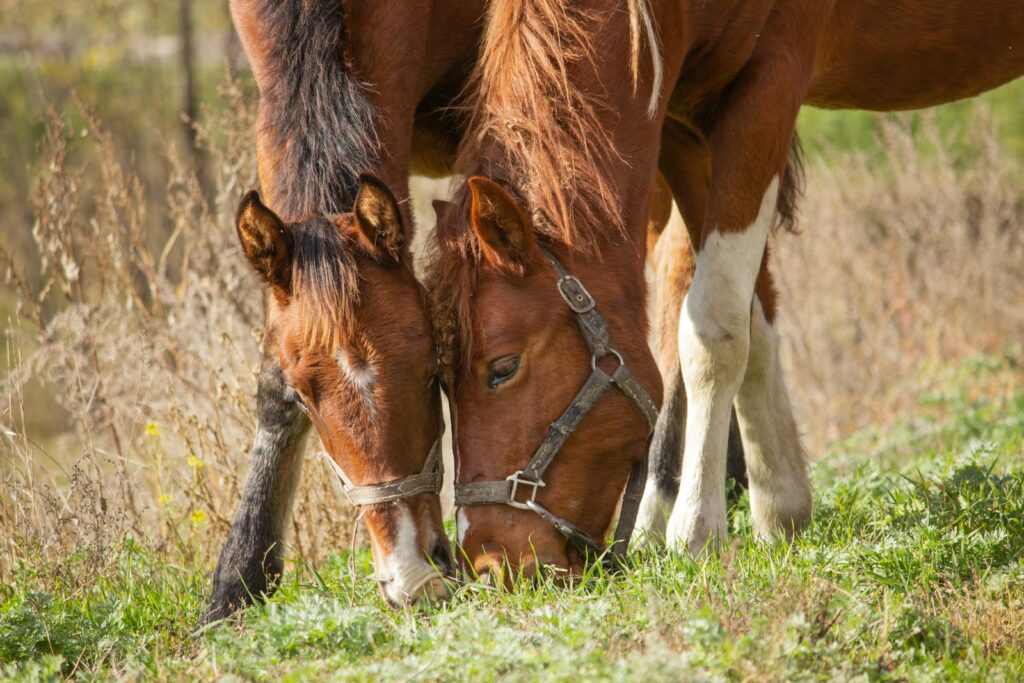
Creating an environment that meets a horse’s natural behavioral needs is one of the most effective ways to prevent depression. Maximizing turnout allows for natural movement patterns, and studies show that horses with daily pasture access exhibit fewer stress-related behaviors. Varied sensory stimulation—such as different terrains, natural obstacles, or safe novelty items—keeps the mind engaged. Feeding enrichment, like slow feeders or scattered forage, supports natural grazing behavior and provides mental stimulation. Social enrichment, including herd arrangements or even non-equine companions like goats, helps satisfy the need for connection when multiple horses aren’t feasible.
Professional Assessment and Intervention
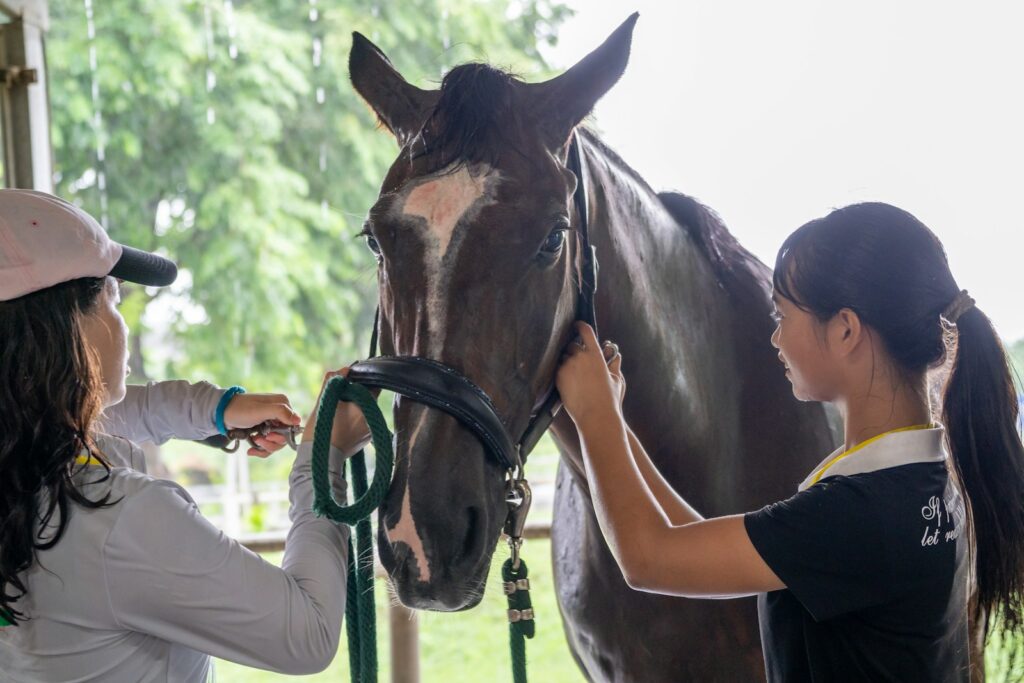
When equine depression is suspected, a team approach often yields the best results. Veterinarians can rule out or address physical issues and may prescribe medication for severe cases. Equine behaviorists bring expertise in horse psychology and can identify environmental or management factors contributing to depression. Experienced trainers can implement targeted exercises that rebuild confidence and engagement. In some cases, equine massage or physical therapists may be helpful in relieving bodily tension that affects mental well-being, as the connection between body and mind in horses is strong.
Dietary Considerations for Emotional Balance
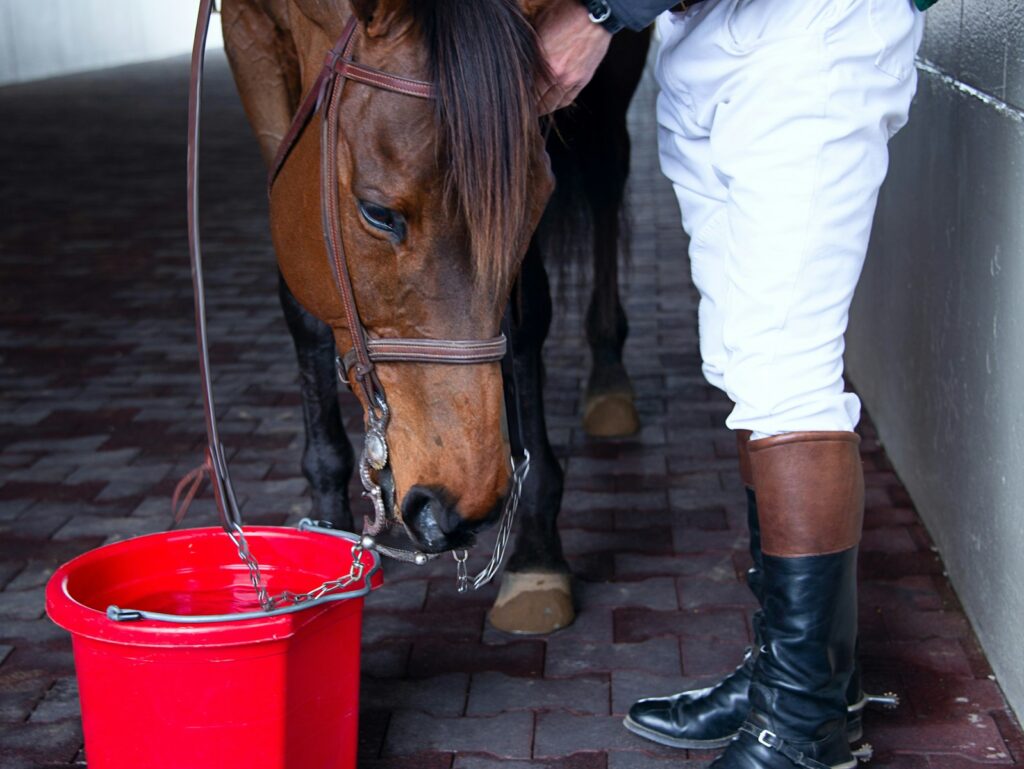
Nutrition plays a more important role in equine mental health than many realize. High-sugar concentrates can lead to energy spikes and crashes that mimic mood disorders, whereas a forage-based diet stabilizes mood and reflects natural feeding patterns. Omega-3 fatty acid supplementation has shown promise in supporting equine psychological wellness, as in other species. Deficiencies in key nutrients—especially B-complex vitamins—can impact neurological function and mood. Consulting with an equine nutritionist can help design a feeding program that supports both physical and emotional health, particularly for horses showing signs of depression.
Exercise and Training Approaches for Depressed Horses
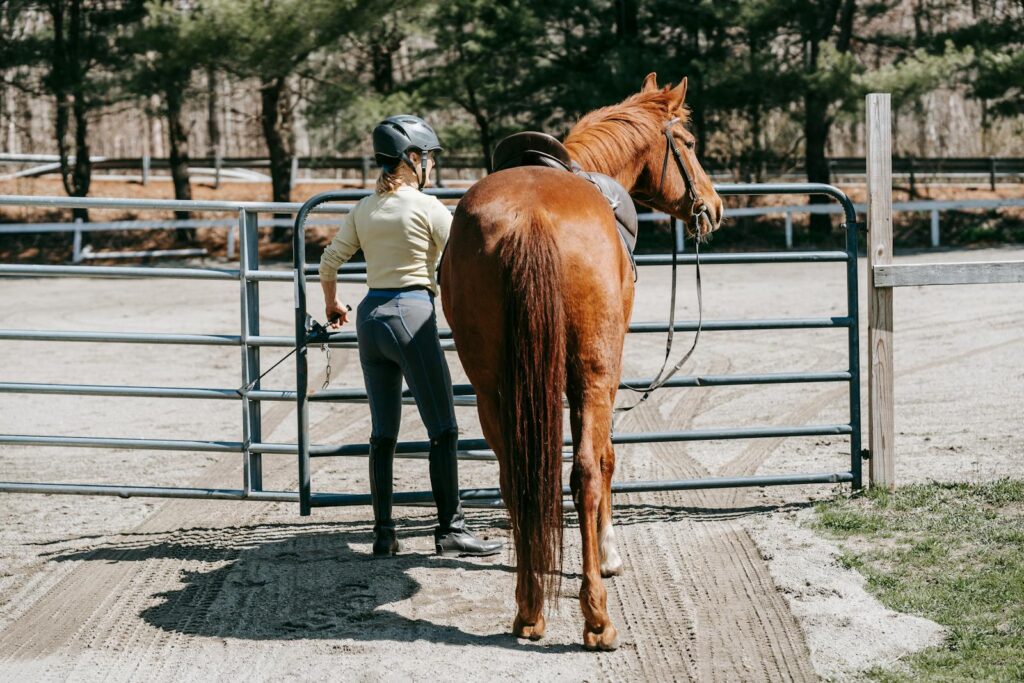
Thoughtful exercise protocols can significantly impact a depressed horse’s recovery by stimulating natural endorphin release and providing mental engagement. Low-pressure, positive reinforcement training methods that build confidence are particularly beneficial for psychologically fragile horses. Variety in exercise routines prevents the monotony that can exacerbate depression, with trail rides, obstacle work, and liberty training offering different types of mental stimulation. Even small training successes should be celebrated to rebuild the horse’s sense of competence and partnership with handlers. For severely withdrawn horses, starting with brief, gentle groundwork sessions before progressing to more demanding activities allows gradual rebuilding of emotional resilience.
Building Trust Through Consistent Handling
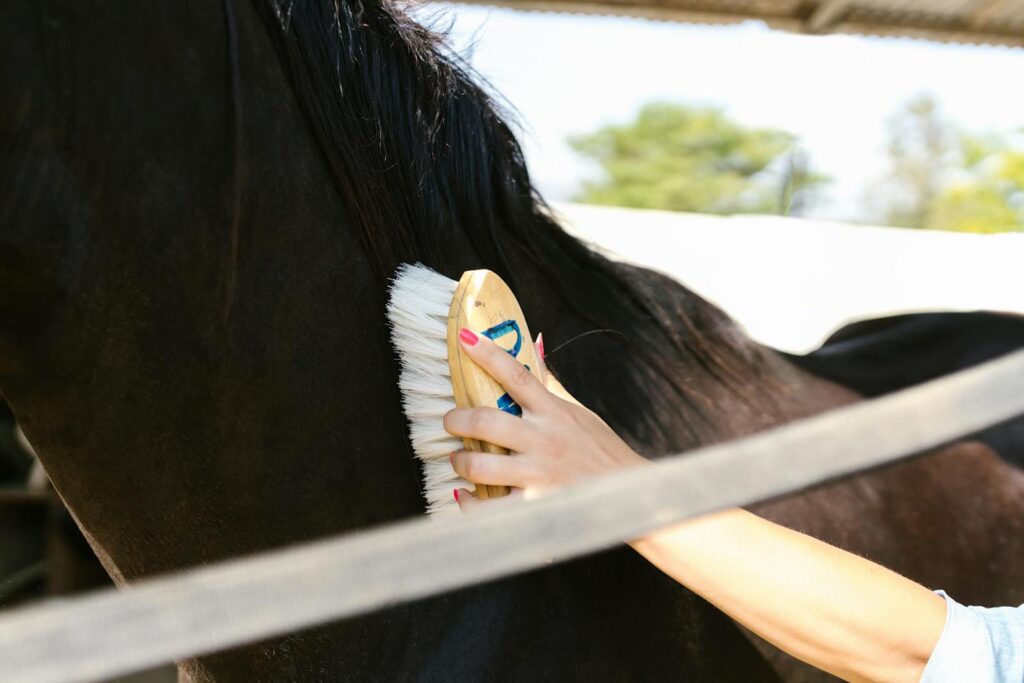
The human-horse relationship significantly impacts equine emotional health, with consistent, predictable handling providing security for depressed horses. Establishing clear communication and boundaries helps horses understand what to expect, reducing anxiety that can compound depression. Taking time for non-demanding interactions, such as quiet grooming sessions or simply sharing space without expectations, can gradually rebuild a withdrawn horse’s interest in human connection. Recognizing and respecting individual personality differences prevents forcing interactions that might increase stress—some horses need space to process emotions, while others benefit from more direct engagement. Progress in trust-building is rarely linear, requiring patience and consistency through inevitable setbacks.
When to Consider Medication Options
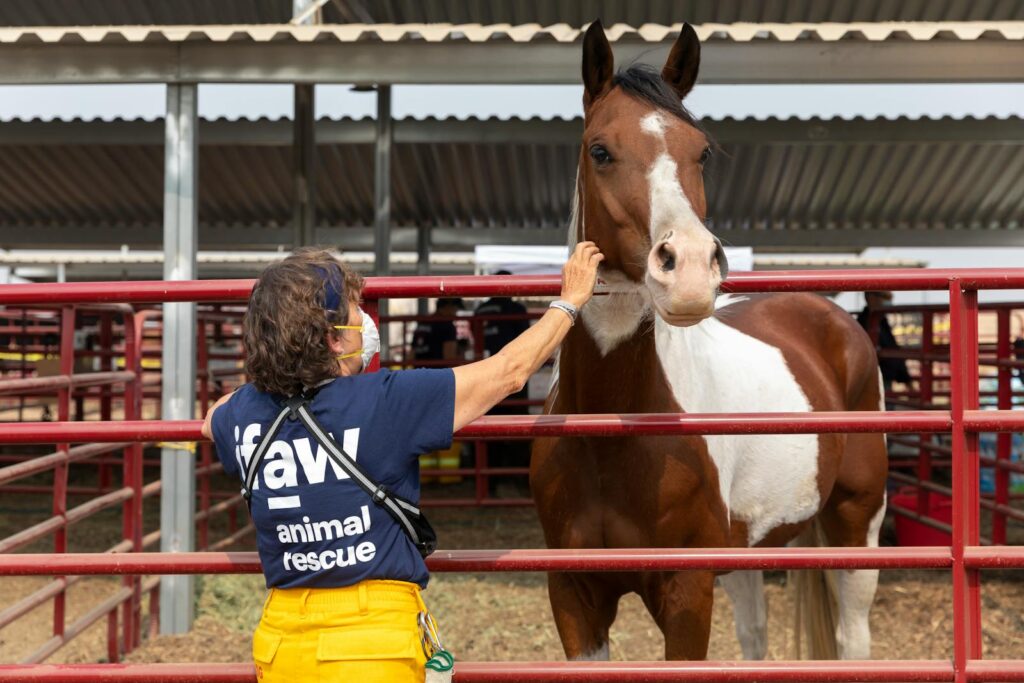
In severe or persistent cases of equine depression, veterinarians may recommend pharmaceutical intervention as part of a comprehensive treatment approach. Medications such as selective serotonin reuptake inhibitors (SSRIs) have been adapted for equine use, though with more limited research than in humans or small animals. Drug therapy is typically considered when behavioral and environmental modifications have proven insufficient, or when a horse’s depression appears to have a strong neurochemical component. Medication is rarely a standalone solution and works best when combined with appropriate management changes, enrichment, and behavioral modification. Any pharmaceutical approach requires careful veterinary supervision with regular assessment of effectiveness and monitoring for potential side effects.
Recovery Timeline and Ongoing Management
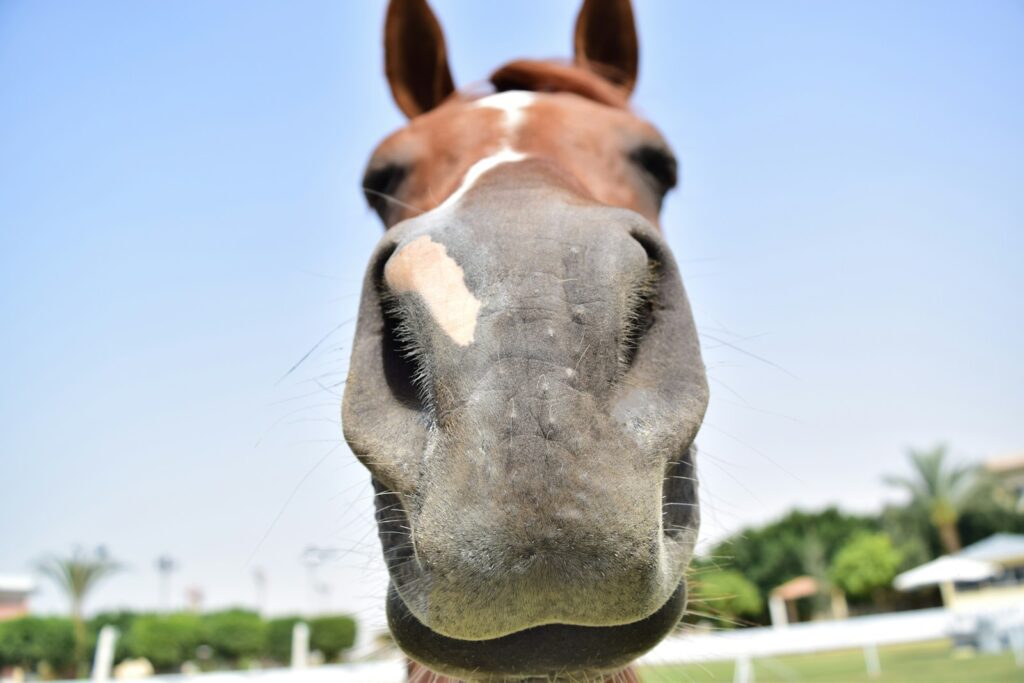
Recovering from equine depression is rarely a quick process, requiring patience and consistent application of appropriate interventions. Initial signs of improvement may include subtle changes such as increased interest in surroundings, more alert ear positioning, or willingness to engage with handlers. Most horses show gradual progress over weeks or months rather than dramatic turnarounds, with occasional plateaus or temporary setbacks being normal parts of the healing process. Even after significant improvement, ongoing management practices that support psychological wellness should be maintained as preventative measures. Regular assessment of behavioral indicators helps catch any recurrence early, as horses that have experienced depression once may be more vulnerable to future episodes if triggering conditions reappear.
Equine depression represents a significant welfare concern that requires attentive observation, comprehensive assessment, and thoughtful intervention. By understanding the complex emotional lives of horses and recognizing the signs of psychological distress, caretakers can take meaningful steps to restore their equine companions’ mental well-being. The interconnected approach of addressing social needs, environmental factors, physical health, nutrition, and training methods offers the best chance for recovery. While treating equine depression requires patience and commitment, the reward is immeasurable—seeing a once-dispirited horse return to a state of engagement, curiosity, and joy. Through dedicated care and understanding, we can help these magnificent animals enjoy the quality of life they deserve.

